
Chem-Bio Informatics Journal
Scope & Guideline
Bridging Disciplines for Tomorrow's Scientific Breakthroughs
Introduction
Aims and Scopes
- Computational Drug Discovery:
The journal emphasizes the use of computational methods to discover and optimize new drug candidates, including techniques such as molecular docking, virtual screening, and machine learning. - Data Curation and Management:
It highlights the importance of data curation in the development of ADME (Absorption, Distribution, Metabolism, and Excretion) models, ensuring that datasets used in computational studies are accurate and reliable. - Systems Biology and Network Inference:
Research focusing on the inference of genetic and protein interaction networks is a core area, employing statistical models and machine learning to understand complex biological interactions. - Molecular Modeling Techniques:
The journal publishes studies on various molecular modeling techniques, including fragment molecular orbital calculations and conformer generation, to provide insights into molecular behavior and properties. - Biological Significance of Molecular Structures:
There is a consistent focus on understanding the biological implications of molecular structures, including studies on intrinsically disordered proteins and their roles in biological processes.
Trending and Emerging
- Artificial Intelligence in Drug Discovery:
Recent publications highlight the increasing integration of artificial intelligence (AI) in drug discovery processes, focusing on its benefits and challenges, which is becoming a pivotal theme in the journal. - Advanced Molecular Modeling Techniques:
There is a growing interest in advanced molecular modeling techniques, particularly those that incorporate machine learning and artificial intelligence to enhance predictive accuracy and efficiency in drug development. - Interdisciplinary Approaches to Biological Challenges:
Emerging themes reflect a trend towards interdisciplinary research that combines chemistry, biology, and informatics to address complex biological challenges, such as the adaptation of viruses and the structure-function relationship of proteins. - Data-Driven Insights in Pharmacology:
The journal is seeing an increase in publications focusing on data-driven insights and predictive modeling in pharmacology, emphasizing the importance of computational methods in understanding drug interactions and toxicity.
Declining or Waning
- Traditional Statistical Modeling:
There has been a noticeable decline in the publication of papers focused solely on traditional statistical methods, such as logistic regression, as researchers increasingly adopt machine learning approaches for more complex data analysis. - Basic Theoretical Studies without Practical Application:
Papers that focus primarily on theoretical aspects without a clear application to practical problems or drug discovery are becoming less common, indicating a shift towards more applied research. - Single-method Studies:
The trend shows a waning interest in studies that utilize a single computational method without integrating multiple approaches, as interdisciplinary and multi-method strategies are gaining traction.
Similar Journals

Journal of Computer Chemistry-Japan
Bridging Theory and Application in Chemical InformaticsJournal of Computer Chemistry-Japan, published by SOC COMPUTER CHEMISTRY, JAPAN, is a dedicated platform for researchers and professionals in the interdisciplinary fields of computational chemistry and chemical informatics. Though the journal does not currently provide open access, it maintains a rigorous selection process for contributions, ensuring the publication of high-quality, peer-reviewed research. With a focus on advancing computational methods and techniques to solve complex chemical problems, the journal aims to bridge the gap between theoretical chemistry and practical applications, making it an invaluable resource for academics and industry professionals alike. As the complexity of chemical systems continues to rise, the relevance of computational approaches in material science, drug discovery, and molecular modeling has never been more critical. Researchers are encouraged to engage with the contents of this journal, which showcases innovative studies, methodologies, and discussions relevant to the evolving landscape of computer-aided chemistry.
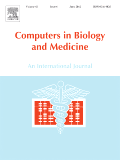
COMPUTERS IN BIOLOGY AND MEDICINE
Transforming Healthcare Through Cutting-Edge Computer ScienceCOMPUTERS IN BIOLOGY AND MEDICINE is a prestigious academic journal published by Pergamon-Elsevier Science Ltd, dedicated to advancing the fields of Computer Science Applications and Health Informatics. With an impressive impact factor and ranking within the Q1 quartile for both categories, this journal plays a crucial role in disseminating high-quality research findings that influence cutting-edge developments at the intersection of computing and healthcare. Covering a broad range of topics from computational biology to medical informatics, it serves as a vital resource for researchers, professionals, and students striving to harness technology for medical advancements. The journal has been publishing since 1970 and continues to evolve, incorporating the latest trends and innovations in the field, thereby ensuring that it remains a key contributor to scientific inquiry and knowledge. With accessible content and a global reach, COMPUTERS IN BIOLOGY AND MEDICINE invites submissions that elevate the understanding and application of computational methods in biological and medical contexts.
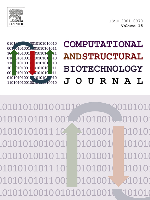
Computational and Structural Biotechnology Journal
Unveiling Breakthroughs in Biochemistry and Genetics via Structural BiotechnologyComputational and Structural Biotechnology Journal is a premier open-access journal published by Elsevier, focusing on the intersection of computer science and molecular biology. Since its inception in 2012, the journal has established itself as a leading platform for innovative research, featuring groundbreaking studies in biochemistry, biophysics, biotechnology, and genetics. With a remarkable Q1 ranking in multiple categories, including Biochemistry and Genetics, it stands out for its high impact, evidenced by its strong Scopus ranking percentile scores. As a vital resource for researchers, professionals, and students, the journal aims to foster the dissemination of essential findings that leverage computational techniques to explore complex biological systems. In a rapidly evolving scientific landscape, Computational and Structural Biotechnology Journal serves as an indispensable resource for those looking to contribute and stay abreast of major advancements in the field.

Bioinformatics and Biology Insights
Advancing the intersection of biology and computation.Bioinformatics and Biology Insights is a premier open-access journal dedicated to advancing the frontiers of bioinformatics and biology. Published by SAGE Publications Ltd, this journal is a leading platform for disseminating high-quality research that integrates computational methods with biological insights. Since its inception in 2007, the journal has garnered significant recognition, reflecting its commitment to excellence, as evidenced by its impressive impact factor and a strong presence across multiple quartiles in applied mathematics, biochemistry, and computational sciences. With a rank of Q1 in both Applied Mathematics and Computational Mathematics and various other notable rankings in related fields, it serves as an essential resource for researchers, professionals, and students seeking cutting-edge knowledge and innovations. The journal's open-access model ensures that findings are readily available, fostering collaboration and advancement in this dynamic field. Through its comprehensive scope and rigorous peer-review process, Bioinformatics and Biology Insights continues to play a pivotal role in shaping the future of biological research and computational methodologies.
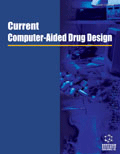
Current Computer-Aided Drug Design
Innovating Therapeutics: The Future of Drug Design Starts HereCurrent Computer-Aided Drug Design, published by BENTHAM SCIENCE PUBL LTD, is a pivotal journal dedicated to the integration of computer-aided methodologies within the drug design process. With its ISSN 1573-4099 and E-ISSN 1875-6697, this journal serves as a vital resource for researchers, professionals, and students interested in advancing the fields of pharmacology and molecular medicine. Operating under a framework that spans from 2006 to 2024, it aims to foster innovative approaches and discussions surrounding drug design strategies, computational techniques, and the therapeutic potential of novel compounds. Although it currently holds a Q4 rating in Drug Discovery and Molecular Medicine as well as a Q3 in Medicine (miscellaneous) within the 2023 category quartiles, the journal continues to enhance its visibility and relevance in the academic community. Its Scopus rankings reflect its commitment to quality research, positioning it in the context of drug discovery and molecular studies. As the field of drug design evolves, Current Computer-Aided Drug Design remains an essential platform for disseminating cutting-edge findings and facilitating collaboration among specialists aiming for significant advancements in drug development.
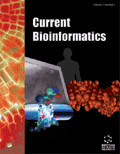
Current Bioinformatics
Innovating Computational Techniques for Biological InsightsCurrent Bioinformatics, an esteemed journal published by Bentham Science Publishers Ltd, serves as a pivotal platform for the dissemination of cutting-edge research in the fields of bioinformatics, biochemistry, computational mathematics, genetics, and molecular biology. With an ISSN of 1574-8936 and an E-ISSN of 2212-392X, this journal has established itself as a vital resource for researchers, professionals, and students keen on exploring interdisciplinary approaches to biological data analysis. Its prominence is reflected in its quartile rankings for 2023, where it stands in Q3 for biochemistry and computational mathematics, alongside Q4 rankings in genetics and molecular biology. Current Bioinformatics, located in the United Arab Emirates and converging from 2007 to 2024, aims to foster innovation in the field by presenting original research articles, reviews, and case studies that drive forward our understanding of complex biological systems through computational techniques. This journal is an integral resource for those wishing to stay at the forefront of bioinformatics research and applications.
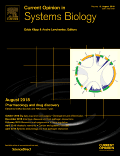
Current Opinion in Systems Biology
Fostering groundbreaking discoveries in systems biology.Current Opinion in Systems Biology is an esteemed academic journal published by ELSEVIER, focusing on the dynamic and interdisciplinary field of systems biology. Since its inception in 2017, the journal has made significant strides in disseminating cutting-edge research and innovative perspectives across various domains, including applied mathematics, biochemistry, and drug discovery. With an impressive impact factor reflecting its prominent position as a Q1 journal in multiple categories—including Applied Mathematics, Biochemistry, and Computer Science Applications—it serves as a vital resource for researchers, professionals, and students alike. The journal embraces a comprehensive approach to understanding complex biological systems, fostering a deeper insight into the interactions within biological and computational frameworks. This makes it an essential conduit for advancing knowledge and innovation in systems biology, facilitating the development of new methodologies that could lead to groundbreaking discoveries.

BRIEFINGS IN BIOINFORMATICS
Transforming Data into Discoveries in Life SciencesBRIEFINGS IN BIOINFORMATICS is a premier academic journal dedicated to the dynamic field of bioinformatics, published by Oxford University Press. With a prestigious standing reflected in its Q1 quartile rankings in both Information Systems and Molecular Biology, this journal serves as an essential resource for researchers, professionals, and students eager to explore the intersection of biology and computational sciences. The journal not only publishes high-impact research articles but also reviews and critical commentaries that push the boundaries of understanding in bioinformatics. As it converges its objectives towards fostering innovation and knowledge dissemination from 2000 to 2024, BRIEFINGS IN BIOINFORMATICS offers rich insights that remain pivotal to advancements in genomic studies, data integration, and computational tools. Its ranking in the top percentiles of Scopus—30th among 394 in Computer Science and 44th among 410 in Molecular Biology—underscores the journal's influential presence in the academic community. Engaging with the latest research and trends, this journal is integral for anyone invested in the future of life sciences and data analytics.

COMPUTATIONAL BIOLOGY AND CHEMISTRY
Advancing Research at the Intersection of Life Sciences and Computational MethodsCOMPUTATIONAL BIOLOGY AND CHEMISTRY is a distinguished academic journal published by Elsevier Science Ltd, focusing on the dynamic intersection of computational biology, biochemistry, and chemistry. With an ISSN of 1476-9271 and an E-ISSN of 1476-928X, this journal is committed to disseminating high-quality research that employs computational techniques to solve complex biological and chemical problems. As of 2023, the journal holds a substantial impact factor reflecting its significance and rigorous peer-review process, categorized in the Q2 quartile for both Computational Mathematics and Organic Chemistry, alongside Q3 classifications in Biochemistry and Structural Biology. With a continuous publication history spanning from 2003 to 2024, it serves as a critical resource for researchers, professionals, and students alike. The journal offers various open access options, ensuring that vital research findings are accessible to a global audience, further enhancing collaboration across disciplines. Engage with cutting-edge studies and contribute to the evolving landscape of computational methodologies in the life sciences through this esteemed publication.
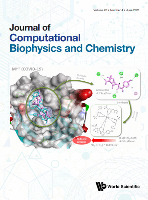
Journal of Computational Biophysics and Chemistry
Innovating Computational Techniques for Biochemical BreakthroughsThe Journal of Computational Biophysics and Chemistry, published by World Scientific Publishing Co. Pte Ltd, is a distinguished platform dedicated to advancing the fields of biophysics and computational chemistry. With an ISSN of 2737-4165 and an E-ISSN of 2737-4173, this journal has garnered attention since its inception, earning a Q3 ranking in Computational Theory and Mathematics and Q4 rankings in both Computer Science Applications and Physical and Theoretical Chemistry as of 2023. The scope of the journal encompasses innovative research that integrates computational techniques with biochemical applications, making it essential reading for researchers, professionals, and students alike. With open access options available, the journal ensures that cutting-edge findings are easily accessible to a global audience, thereby fostering collaboration and innovation in the scientific community. Based in Singapore, the journal aims to converge ideas and methodologies from 2021 to 2024, paving the way for transformative insights in computational methods. Join a community at the forefront of research and applications that bridge disciplines through rigorous scholarship and pioneering discoveries.